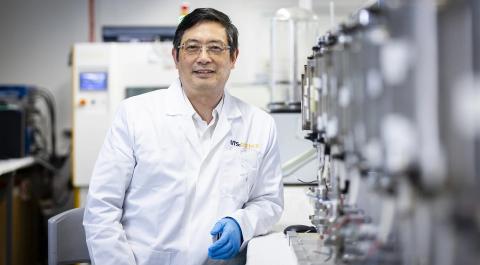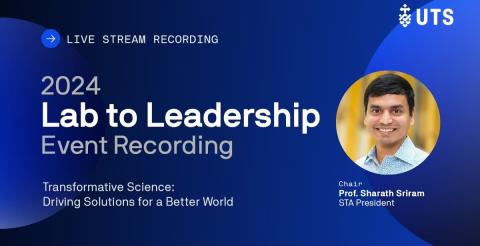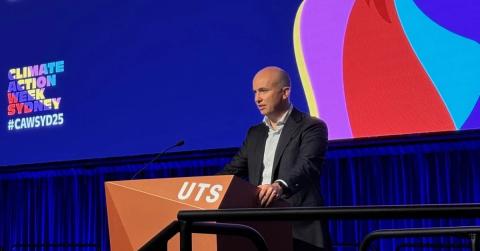How to become a sustainability consultant

As Australia accelerates its transition towards a low-carbon economy, sustainability consulting is no longer a niche profession—it’s a strategic imperative.
With climate policy tightening, global markets prioritising ESG and consumers demanding accountability, organisations across every sector are seeking experts who can embed sustainability into the DNA of their operations. Enter: the sustainability consultant.
Part scientist, part strategist, part communicator—these increasingly sought-after professionals sit at the intersection of environment, economics and ethics.
Whether advising on carbon reduction strategies, shaping sustainable supply chains or guiding businesses through regulatory landscapes, sustainability consultants are helping futureproof organisations against the risks and realities of a changing planet.
But how do you become one? Whether you’re a career changer from engineering, marketing or law—or an emerging professional with a passion for environmental leadership—the path to becoming a sustainability consultant is multi-faceted.
It involves not just technical expertise, but systems thinking, stakeholder engagement and the kind of leadership that can inspire real change. With Australia on the cusp of a major clean energy transformation, there’s never been a better time to enter the field.
What does a sustainability consultant do?
At its core, sustainability consulting is about translating complex sustainability goals into actionable strategies.
Consultants help organisations measure their environmental impact, align with evolving legislation and implement meaningful change across their operations. But the role extends far beyond compliance.
In construction, consultants may lead life cycle assessments or green building certifications like NABERS and Green Star. In manufacturing, they assess energy use, waste outputs and circular economy opportunities. In corporate or government settings, they may design CSR strategies, write ESG reports or advise on climate-related financial disclosures.
Some sustainability consultants may operate independently or within specialised consultancies.
Others work in-house as sustainability managers, analysts, or ESG leads. Across sectors, the work is diverse but united by one goal: enabling responsible, climate-conscious, long-term decision-making.
Why pursue a career in sustainability consulting?
It’s a field with both purpose and potential.
Australia is in the midst of a profound energy transformation. According to the Clean Energy Australia 2024 report, nearly 40 per cent of the nation’s electricity came from renewable sources in 2023—a figure set to accelerate as decarbonisation targets tighten and global markets shift towards low-emissions economies.
With such ambitious targets in place, demand for highly skilled professionals who understand the environmental, economic and social implications of this shift is only growing.
But sustainability consulting isn’t only about the environment. It’s about aligning company values and stakeholder expectations, boosting operational efficiency and building resilience against climate risks.
Consultants have the chance to work on high-impact projects, influence major decisions and drive systemic change across industries and borders.
If you’re seeking a values-driven career with significant real-world impacts, few roles are more compelling.
Steps to becoming a sustainability consultant
Becoming a sustainability consultant requires more than passion—it demands a structured, strategic approach to expertise and effective action. From foundational knowledge to professional positioning, here are the steps to building a career in the field.
Gain foundational knowledge
Before you can advise others on sustainability, you need a strong understanding of its principles—such as systems thinking, environmental economics, climate science and ESG frameworks.
For those without a formal background in sustainability, courses like the Graduate Certificate in Sustainable Practice from UTS Online provide a strong foundation. Designed for professionals from diverse industries, the course covers the core theories and practices underpinning modern sustainability–from ethical leadership to impact measurement.
It’s an ideal first step into the space and a pathway to further study for those who want to deepen their expertise.
Develop key skills
To succeed as a sustainability consultant, it’s not enough to understand environmental science—you need to lead, influence and deliver outcomes in dynamic, often high-stakes environments.
The role requires a blend of analytical thinking, strategic insight and systems-level leadership. Core competencies include:
- Strategic leadership: The ability to lead transformative change is central to the consultant’s role. This means understanding how sustainability fits within broader organisational goals and being able to drive initiatives that align environmental objectives with financial, operational and reputational outcomes.
- Data analysis and literacy: Quantifying impact is critical. Consultants must be adept at interpreting carbon footprints, energy efficiency data, life-cycle assessments and ESG performance metrics.
However, beyond interpretation lies translation–the ability to convert complex data into business cases, board reports and operational strategies that decision-makers can act on.
- Fluency in policy and policy advisory skills: Sustainability consultants need a deep understanding of regulatory frameworks, both domestic and global—from Australia’s safeguard mechanism to the UN Sustainable Development Goals, Task Force on Climate-related Financial Disclosures (TCFD) and emerging ESG standards.
Just as importantly, they must know when and how to shape policy direction, whether through submissions, advisory panels or cross-sector collaboration.
- Stakeholder engagement and communication: Sustainability initiatives succeed or fail based on buy-in. Consultants must build trust across diverse stakeholder groups—boards, employees, regulators, community leaders—and tailor their messaging to different audiences.
- Evidence-based decision making: Whether conducting materiality assessments, scenario analysis or cost-benefit modelling, consultants rely on rigorous methodologies to develop strategies that are not just ethically sound but also economically and socially viable.
The Master of Sustainable Leadership and Master of Sustainable Energy offered through UTS Online—one of the world’s top universities for sustainability—are built around these skills.
Both courses are delivered 100% online, with flexible study options and support from expert instructors for working professionals. These degrees equip graduates with real-world perspectives that align with industry needs.
The Master of Sustainable Leadership focuses on sustainability strategy, leadership and organisational transformation. Students explore how to design, implement and communicate sustainability initiatives across industries and often move into roles such as ESG advisors, CSR managers or consulting in government or large-scale enterprise environments.
The Master of Sustainable Energy is ideal for those looking to work on the front lines of Australia’s clean energy transition—covering energy systems, policy design and technology-led decarbonisation.
Both degrees combine academic rigour with practical, industry-relevant assessments and are taught by experts deeply embedded in the Australian sustainability landscape.
Build industry connections
In a fast-moving field like sustainability, staying connected is key. The best way to do so is to attend events like the Sustainability Leaders event, the Australian Clean Energy Summit or All-Energy Australia.
Getting involved with local chapters of industry bodies such as the Australian Sustainable Built Environment Council (ASBEC), Green Building Council of Australia or the Clean Energy Council is another great way to go about it.
In general, be proactive. Join online communities, volunteer with environmental non-governmental organisations (NGOs), contribute to industry whitepapers or blogs. Network with fellow students and graduates within your post-graduate community.
Connections forged in these spaces often lead to new roles, collaborations and consulting opportunities. They also ensure you remain across emerging trends from circular economy innovation to ESG reporting frameworks and supply chain decarbonisation.
Career growth and salary expectations for sustainability consultants
As sustainability becomes a core business priority, consultants are increasingly being recognised for their strategic value and compensated appropriately.
According to Talent.com, entry-level sustainability consultants in Australia start at almost $100,000 and reach nearly $160,000, depending on experience and sector.
Senior consultants and ESG leads command higher salaries. Some more experienced positions are even advertised for $160,000 and higher. As the demand for this highly specialised profession increases, so too will its earning potential.
Career pathways are equally diverse. Many sustainability consultants move into:
- ESG advisory roles at top-tier consulting firms
- Sustainability leadership within major corporations
- Policy and regulatory roles in government
- Independent or boutique consultancy work
Advanced qualifications such as UTS Online’s Master of Sustainable Leadership and Master of Sustainable Energy can significantly accelerate progression, particularly into senior and strategic roles. These courses not only equip graduates with deep expertise but signal to employers a readiness to lead major sustainability initiatives.
Empowering organisations to embrace sustainable change
The need for sustainability consultants has never been clearer and their potential for creating significant change has never been greater.
As businesses and governments navigate complex transitions towards net-zero emissions, they need professionals who can connect vision with action—qualified strategists who understand both the science and the systems at play.
The Master of Sustainable Leadership and Master of Sustainable Energy offered through UTS Online are designed to empower the next generation of sustainability leaders—individuals who are not only fluent in policy and metrics but also capable of inspiring meaningful change at scale.
If you’re ready to help shape Australia’s sustainable future, it may be time to level up your expertise—and your impact.
Be a catalyst for positive change. Explore UTS Online’s sustainability courses and shape a future that makes a difference. Talk to our Student Enrolment Advisors at 1300 477 423 or visit our website today.





